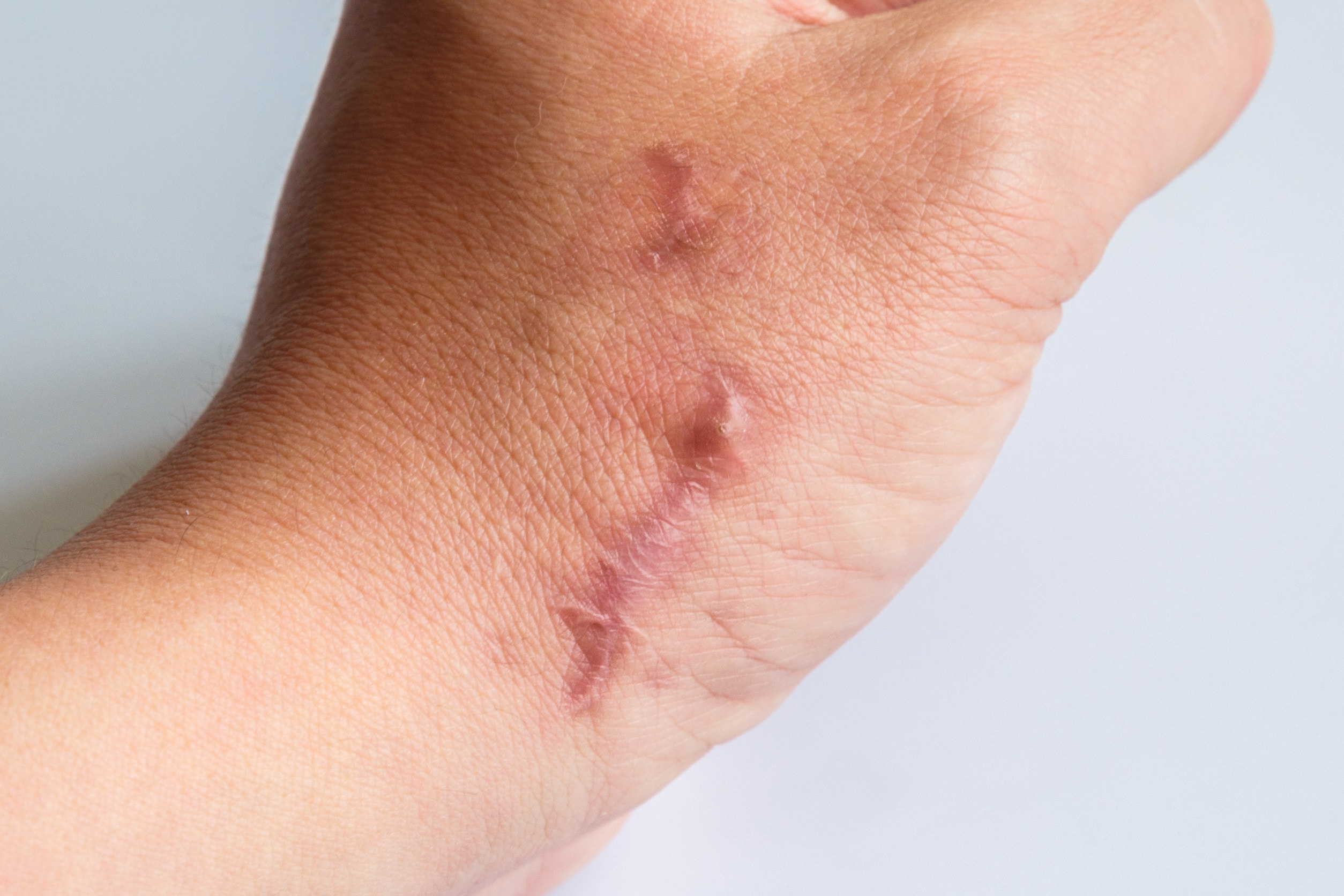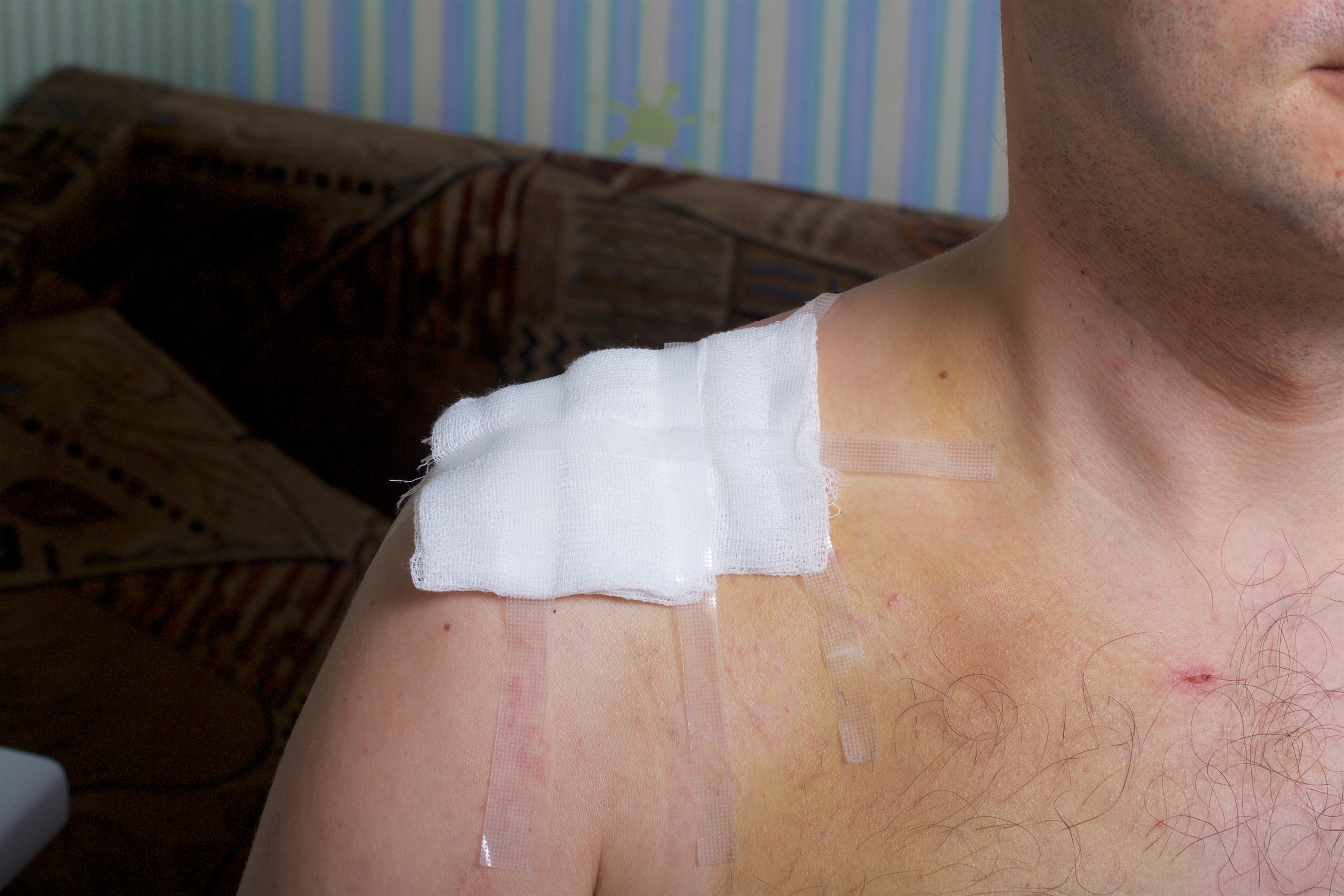A Guide To Permanent Scar Compensation Claims
If you were left with permanent scars after being injured, this could cause you both physical and emotional pain, as well as various financial losses. If this injury was a result of someone else’s negligent actions, you may be able to make a claim for permanent scar compensation. Read on to learn more.
Key Takeaways In Permanent Scar Compensation Claims
- The amount of compensation you could receive depends on different factors, such as the severity of the scar and whether you suffered any financial losses
- You can potentially make a claim if you can prove that negligence occurred
- Generally, the time limit for starting a claim is three years
- You’ll need to gather evidence to support your claim
- A No Win No Fee solicitor could help you through the claims process
Keep reading to learn everything you need to know about the claims process. Or, If you’re ready to start your permanent scar compensation claim, contact us today by:
- Calling us on 020 3870 4868
- Using the live chat feature
- Contacting us online
Select A Section
- How Much Permanent Scar Compensation Could You Receive?
- What Can Affect Your Compensation Amount?
- Who Can Make A Permanent Scar Compensation Claim?
- How Long Do You Have To Make A Scar Claim?
- What To Do You If You Suffer A Permanently Scarring Injury
- The Benefits Of Claiming Compensation
- Make A No Win No Fee Permanent Scar Claim
- More Information
How Much Permanent Scar Compensation Could You Receive?
You might be wondering how much compensation you could receive for a permanent scar injury following an accident that was not your fault. We’ll explore the factors that could affect your compensation in the next section, but for now, let’s look at what your compensation could be made up of.
Generally, personal injury compensation payouts can be made of up to two headings. The first heading, general damages, is awarded to every successful claimant.
General damages cover the pain and suffering caused by your injuries, but it also covers something called loss of amenity. This covers the effect that your injuries have had on your quality of life. For example, if you find it hard to socialise following your injuries because of your scars, this could be considered under loss of amenity.
When general damages are calculated, those negotiating your settlement can use the Judicial College Guidelines (JCG) to help. The JCG contains a list of injuries and illnesses and provides guideline compensation brackets for each. Below, we’ve included a compensation table containing the JCG entries for scarring and the first entry isn’t from the JCG.
| Injury | Compensation Bracket |
|---|---|
| Multiple Severe Injuries + Special Damages, Such As Lost Earnings And Cosmetic Aids | Up to £250,000+ |
| Very Severe Scarring To The Face | £36,340 to £118,790 |
| Less Severe Facial Scarring | £21,920 to £59,090 |
| Significant Facial Scarring | £11,120 to £36,720 |
| Less Significant Facial Scarring | £4,820 to £16,770 |
| Trivial Facial Scarring | £2,080 to £4,310 |
| Burns - That Cover Over 40% of the Body | Likely to exceed £127,930 |
| One Single Scar That Is Disfiguring or A Number of Laceration Scars That Are Noticeable | £9,560 to £27,740 |
| Scarring With No Significant Internal Injury | In the region of £10,550 |
| Single Noticeable Scar Or Several Superficial Scars | £2,890 to £9,560 |
What About The Financial Effects Of Permanent Scarring?
The second head of claim, special damages and addresses the financial effects of your injuries. For example, under this heading, you could potentially claim back the cost of:
- Lost earnings from taking time off work
- Childcare
- Travel to and from appointments
- Prescriptions
- Future medical treatments
- Cosmetic surgeries
- Cosmetic aids, like makeup or wigs
To learn more about permanent scarring compensation, keep reading. Or, if you’re ready to start your personal injury compensation claim, contact our team today.
What Can Affect Your Compensation Amount?
Several factors can affect your compensation. This is because every claim is valued based on it’s own unique circumstances, including:
- How much evidence you have
- The severity of your injuries
- How your injuries have affected your quality of life
- Whether the other party accepts liability
- The financial effects of your injuries
These are just a few of the factors that can affect how much permanent scar compensation you receive. Talk to one of our expert advisors today to learn more.
Who Can Make A Permanent Scar Compensation Claim?
So, when can you make a permanent scar claim? Simply being scarred isn’t enough; you need to be able to prove that the scarring is a result of negligence, which happens when:
- Someone owes you a duty of care
- They breach this duty
- You are injured as a result
When someone owes you a duty of care, this essentially means that they are responsible for your health and safety. For example, you are owed a duty of care:
- At work: Under the Health and Safety at Work etc. Act 1974 (HASAWA), your employer needs to take all reasonably practicable steps to ensure your safety in order to fulfil their duty of care.
- Using the roads: Road users need to make sure they don’t cause damage or harm to other road users to fulfil their duty of care. They must also adhere to the Highway Code and the Road Traffic Act 1988.
- In public: The person in control of that space, also known as the occupier, needs to ensure the reasonable safety of visitors to fulfil their duty of care. This is outlined in the Occupiers’ Liability Act 1957 (OLA).
Can I Claim For Permanent Scarring Caused By Medical Negligence?
You may have experienced scarring as a result of medical negligence. If you believe that a doctor, surgeon, or other medical professional has provided substandard care and this caused permanent scarring, contact our team of advisors today. They can provide more information on medical negligence claims.
How Long Do You Have To Make A Scar Claim?
Usually, you have three years to start your personal injury claim for permanent scar compensation. This is set out by the Limitation Act 1980 and applies to all personal injury claims, from road traffic accidents to public place injuries.
However, there are some exceptions to this rule. These apply to:
- Those under the age of eighteen: Under 18s cannot claim for themselves. Instead, a litigation friend can start proceedings on their behalf at any point up until their 18th birthday.
- Those who lack the mental capacity to claim for themselves: In these cases, a litigation friend can start proceedings at any time unless the needed capacity is regained. In this case, the time limit will run from this recovery date.
To learn more about making a permanent scar compensation claim, contact us today.
What To Do You If You Suffer A Permanently Scarring Injury
There are a few different steps you can take after suffering permanent scarring from an injury, including:
- Seeking medical attention – keep a copy of your medical records to use as evidence in your claim
- Gathering evidence – such as CCTV footage, photographs of the accident site and the contact information of anyone who witnessed your accident.
- Keeping a record of your financial losses – such as invoices, bank statements and payslips.
- Getting legal advice – If you talk to our advisors about your case, they may connect you with an experienced solicitor from our panel who could provide you with legal advice and help you get started making a claim.
Our team of advisors are here to help. If you’d like to find out whether or not you could make a permanent scar compensation claim, talk to a member of our team today.
The Benefits Of Claiming Compensation
Claiming compensation can be beneficial for a number of reasons. The first is that a successful claim can help give you a sense of justice following your injuries.
The second is that, as we’ve already discussed, a successful claim can significantly lighten the financial burden that serious injuries can cause. For example, special damages can help with the financial losses your scarring has caused, and general damages can cover the pain and suffering you’ve endured.
Finally, making a compensation claim can contribute to real change, depending on who you claim against. For example, if you’re making an accident at work claim, it can help encourage your employer to rethink their health and safety policies to ensure similar accidents do not occur again in the future.
Read on to find out how a No Win No Fee solicitor from our panel could help you make a compensation claim, or get in touch to get started.
Make A No Win No Fee Permanent Scar Claim
Our panel of solicitors could help you through every step of the personal injury claims process. For example, a solicitor from our panel could help you gather evidence, negotiate a settlement, and communicate with the defendant.
Since our panel works on a No Win No Fee basis, you can access all of these services without having to pay for them:
- Upfront
- As the claim is ongoing
- At all if the claim fails
This is because our panel works with their clients through something called a Conditional Fee Agreement (CFA). Under this kind of contract, you’ll only pay a success fee to your solicitor if you make a successful claim.
This is taken from your compensation as a small percentage, but the percentage they can take is capped by law; this helps to make sure that you keep the larger share of what you receive.
Contact Us Today
If you’re ready to get started on your permanent scar compensation claim with a No Win No Fee solicitor from our panel, contact our team today by:
- Calling us on 020 3870 4868
- Using the live chat feature
- Contacting us online
More Information
To learn more about personal injury claims:
- Learn everything you need to know about the road traffic accident claims process
- Find out if you could make a traumatic brain injury claim
- Get help with making a broken wrist compensation claim
Or, to find more information:
- Information on scars from the NHS
- Learn how to request CCTV footage of yourself to use as evidence
- Find out if you could be eligible to claim Statutory Sick Pay (SSP)
Thank you for reading our guide on claiming permanent scar compensation.













